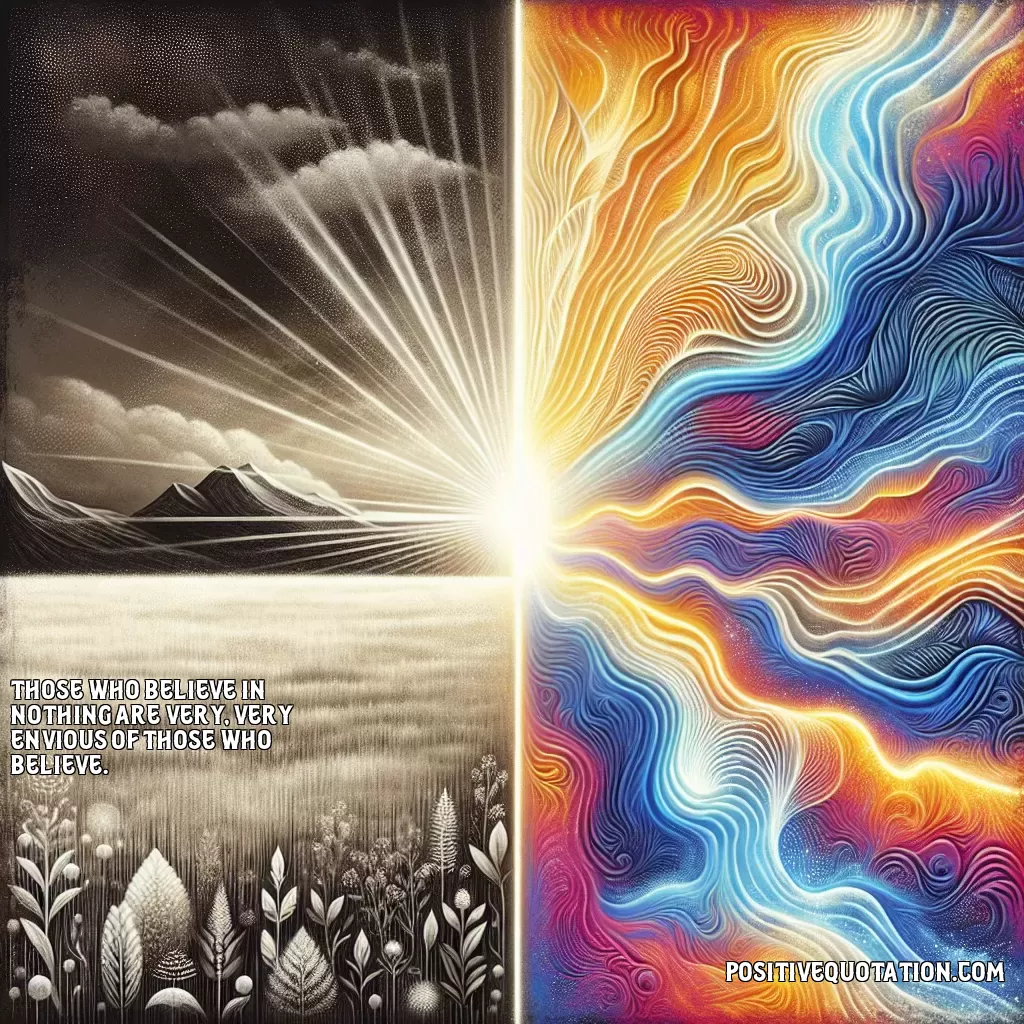
Those who believe in nothing are very, very envious of those who believe.
Author: Bertolt Brecht
👁️ 15 views

Those who believe in nothing are very, very envious of those who believe.
👁️ 15 views
The quote "Those who believe in nothing are very, very envious of those who believe" ponders the nature of belief and its impact on human experience. At its essence, belief provides a sense of purpose, direction, and meaning in life. When individuals hold beliefs—be they spiritual, philosophical, or ideological—they gain a framework through which to interpret the world, make decisions, and find solace in times of uncertainty. This sense of structure offers not only comfort but also a profound connection to something larger than oneself, which often fosters a sense of belonging and fulfillment. Conversely, those who believe in nothing—whether due to skepticism, disillusionment, or a perceived failure of belief systems—may find themselves lacking this sense of grounding. Without belief, individuals can experience feelings of emptiness, aimlessness, or existential doubt. This void can foster envy toward those who possess a clear set of beliefs, as they seem to have an anchor in the tumultuous sea of life. Belief offers hope and clarity, providing answers to challenging questions and acting as a source of inspiration and motivation. Envy arises from witnessing others find strength and solace in their beliefs, while the unbelieving person grapples with uncertainty and a perceived lack of purpose. The quote suggests that even if one claims independence from belief, there could be a deep-seated yearning for the certainty and comfort that belief provides. Ultimately, the quote invites reflection on the profound human need for meaning and connection, encouraging those who believe in nothing to acknowledge the potential value of belief—not as a doctrine to be blindly followed, but as a source of personal growth and understanding.
Quote By: Bertolt Brecht
Bertolt Brecht (1898–1956) was a German playwright, poet, and theatrical innovator known for his influential contributions to modern drama and his development of the "Epic Theatre" concept. Born in Augsburg, he became a vocal critic of capitalism and social injustice, which prominently featured in his works such as "The Threepenny Opera" and "Mother Courage and Her Children." Brecht's experimental techniques aimed to encourage audiences to think critically about societal issues, shaping the landscape of contemporary theater.
Bio added on: 2025-02-15 04:23:14